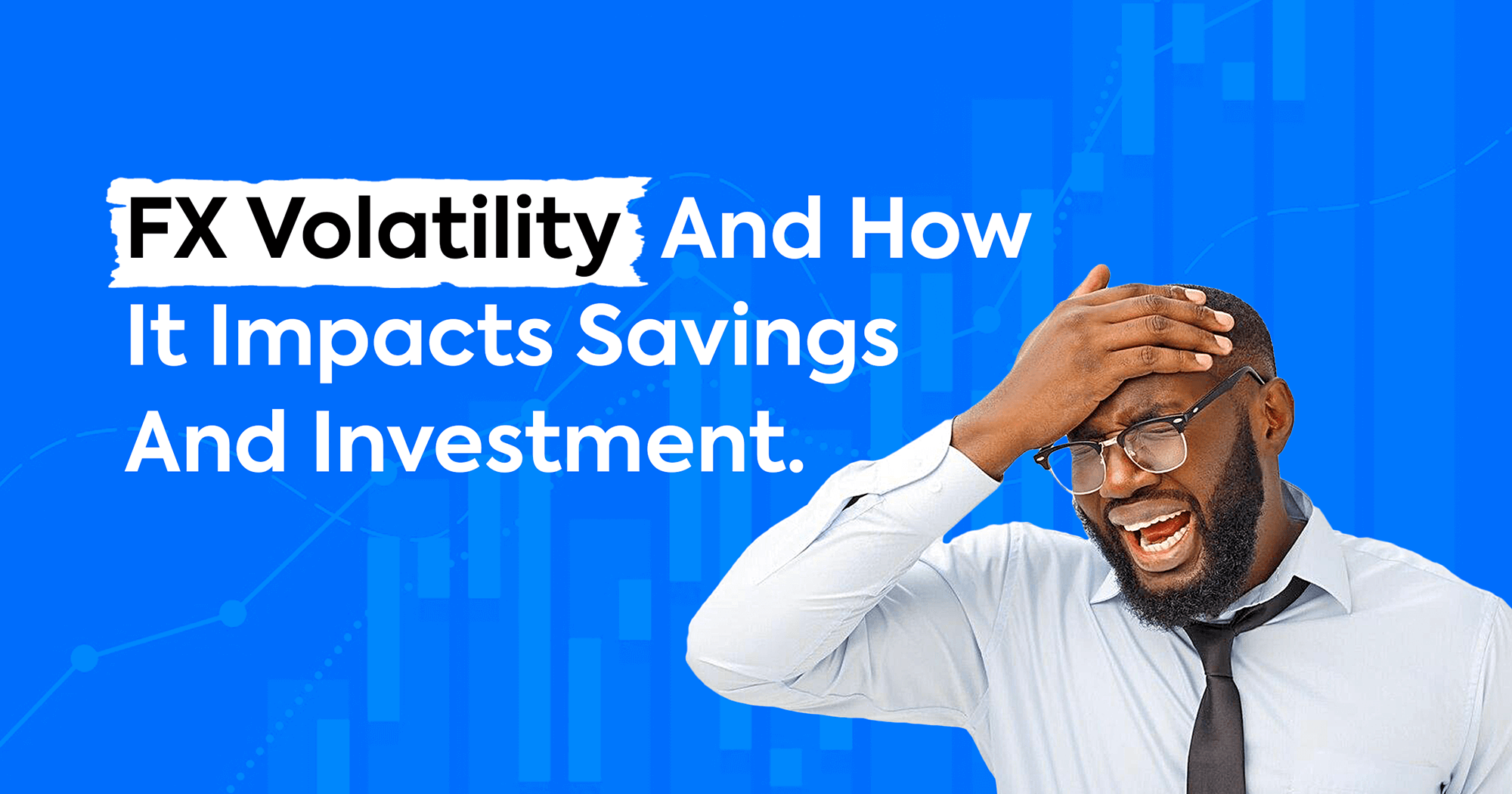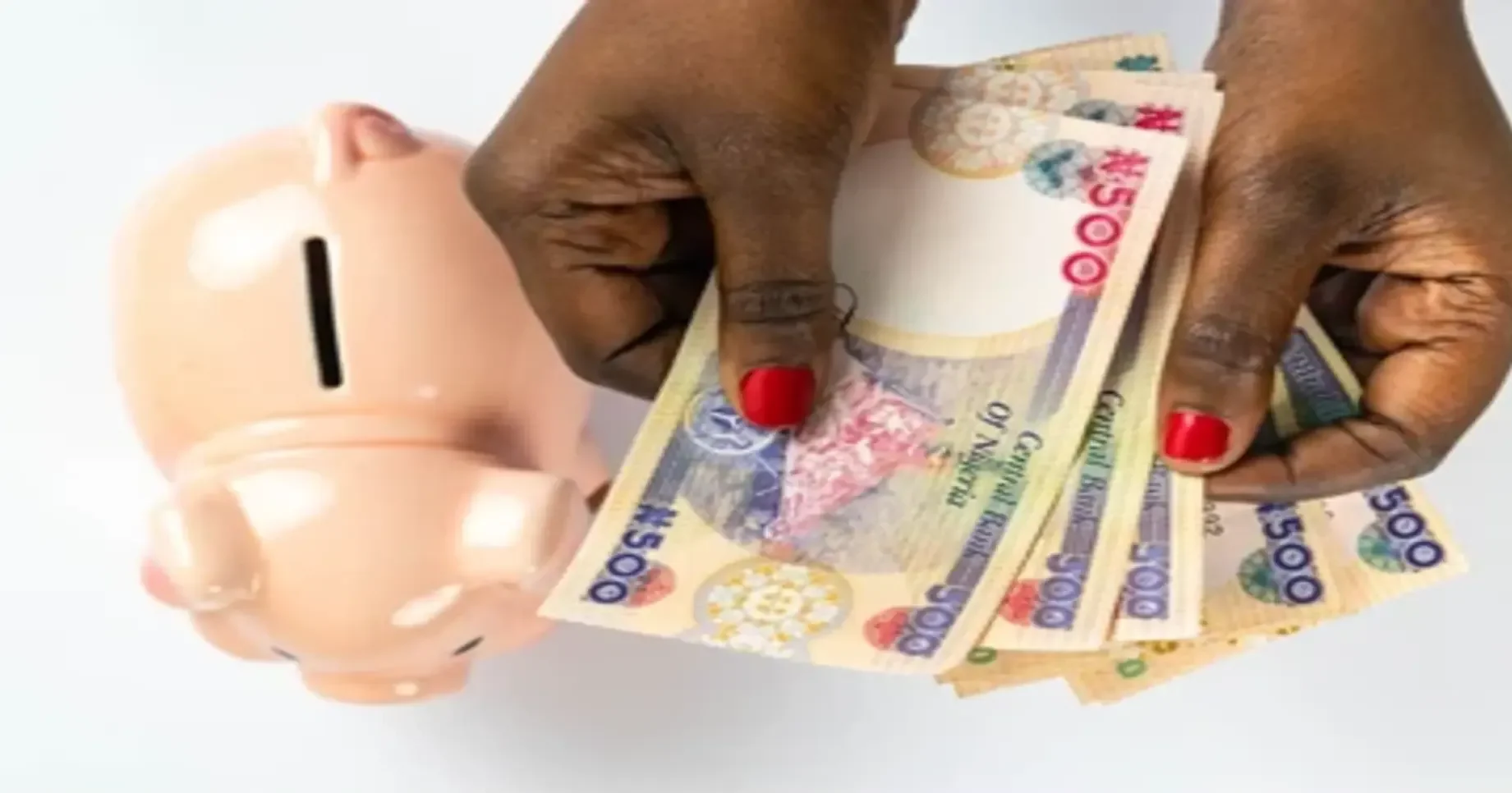
FX Volatility And How It Impacts Savings And Investment.
Adewale was saving to buy a new laptop worth ₦250,000 around December 2023. It was not in stock, so he added an extra ₦50,000 to cover potential fluctuations in the naira to the dollar exchange rate, especially since the Central Bank of Nigeria (CBN) allowed the naira to float after the new government took office. As the Naira-to-dollar exchange rate continued to drop, by May 5th, the laptop's price had risen to ₦400,000, and his savings were inadequate.

This is the harsh reality for many Nigerians this year, but how many people understand foreign exchange volatility and its impact on their savings and investments? Some people advise that if you see something you want, buy it immediately because prices are unlikely to decrease, and the initial price may be the cheapest you'll ever see. Others argue that there is no point in saving because low purchasing power will erode your savings, and inflation will inevitably take its bite.
Foreign exchange volatility refers to the degree to which the exchange rate between two currencies fluctuates over time. It is the measure of how much the value of a currency pair (e.g., NGN/GBP, NGN/USD) changes over time.
Several factors affect FX volatility:
1. Economic factors: With the inflation rate running like a hen in heat and the interest rate following it bumper-to-bumper, currency fluctuation is inevitable.
2. Political events: The 2023 election, the free-floating of the naira against the US dollar and other major global currencies, and other policies published and implemented by the CBN can create uncertainty and impact currency values.
3. Market Sentiment and Speculation: Trader sentiment, market expectations, and speculative activities can influence FX volatility. Sudden shifts in sentiment due to unexpected events or news can lead to rapid price movements.
4. Market Liquidity: FX markets with higher liquidity tend to have lower volatility, as more participants are willing to buy and sell currencies at various price levels.
5. Market Intervention: Central banks and governments may intervene in the FX market to stabilize their currencies or address imbalances, just as we saw in June 2023 when the naira was floated, and other policies implemented by the CBN in the bid to stabilize the naira against other currencies. Such interventions can impact exchange rates and volatility.

Importance of Understanding FX Volatility for Savings and Investment Decisions.
Understanding FX volatility is crucial for individuals making savings and investment decisions, especially in an economy where currency fluctuation is the norm. Here's why:
1. Erosion of purchasing power: Purchasing power is simply the value of a currency expressed in terms of the number of goods or services that one unit of money can buy.
For example, if you had saved £100 when the exchange rate was ₦400/£1, your savings would be worth ₦40,000. However, if the naira depreciates to ₦500/£1, your £100 savings would now be worth ₦50,000 in your local currency giving you an extra ₦10,000, that's some gain, right?
On the other hand, if you saved in naira, you would still have ₦40,000 (£80) after the depreciation. Your purchasing power has decreased because it now takes more naira to buy the same amount of pounds.
2. Risk aversion and reduced savings: High FX volatility can lead to increased uncertainty and discourage individuals from saving in foreign currencies because of the instability of rates. People may hesitate to commit to long-term savings goals if they fear currency fluctuations will erode their future purchasing power.
3. Increased risk and potential losses: Investing in foreign assets exposes your portfolio to the fluctuations of the underlying currencies. The value of your investments can significantly increase or decrease depending on currency movements. For example, if you invest in UK stocks while the UK pound depreciates, the value of your investment in your local currency will also decrease.
4. Opportunities for diversification and higher returns: By strategically diversifying your investments across different currencies, you can mitigate risk and benefit from favourable exchange rate movements. In addition, investing in assets expected to outperform their domestic counterparts due to currency fluctuations can lead to higher returns. Investors seeking diversification can consider assets like real estate in a country with a strong currency, stocks of companies that do business in multiple countries, and commodities like gold and oil.
Strategies for Managing FX Volatility
1. Diversification:
Imagine your investment portfolio is like a basket filled with eggs. Putting all your eggs in one basket (investing in a single currency) means a single currency collapse could wipe out your entire investment. Diversification is like spreading your eggs across multiple baskets (different currencies and asset classes). Even if one currency weakens, the others can offset those losses and provide stability to your overall portfolio.
Benefits of Diversifying Across Currencies:
By spreading your investments across different currencies, you are less reliant on the performance of any single currency or asset. Diversification helps to protect your portfolio from unexpected fluctuations in any one market.
Currencies with strong growth potential can offer significant returns on investments. Diversification allows you to tap into these opportunities by including assets denominated in those currencies.
Some currencies perform better than others during inflationary periods. By strategically diversifying, you can hedge against inflation in your home currency.
Asset Classes for Currency Diversification: foreign stocks and bonds, mutual funds, exchange-traded funds (ETFs), and real estate.
2. Hedging strategies:
You're an importer who needs to pay for goods in Pounds (GBP) in three months. You're worried that the Naira (NGN) might weaken against the pound, leading to higher import costs. Hedging allows you to lock in an exchange rate today, protecting your business from future fluctuations.
Here are two hedging tools:
1. Forwards Contracts: A forward contract is a private agreement between two parties to buy or sell a specific amount of currency at a predetermined exchange rate on a future date. In our import example, you could enter a forward contract to buy pounds at a fixed rate in three months, ensuring a predictable cost for your goods.
2. Options Contracts: An option contract grants you the right, but not the obligation, to buy or sell a specific amount of currency at a certain price (strike price) by a specific date (expiry date). Options contracts provide more flexibility than forwards.
- Call Option: If you're worried about the naira weakening against the pound, you could buy a pound call option. This gives you the right to buy pounds at the strike price by the expiry date, protecting you if the pound strengthens significantly.
- Put Option: If you're concerned about the pound weakening against the naira, you could buy a pound put option. This allows you to sell pounds at the strike price by the expiry date, protecting you if the pound weakens more than anticipated.
Advantages of Hedging:
Hedging ensures a predictable exchange rate for your transactions and protects your business or investment from potential losses.
Knowing your exchange rate is locked in can offer peace of mind and help you plan your finances more effectively.
Hedging allows you to manage your risk exposure to specific currencies, balancing your overall investment strategy.
Disadvantages of Hedging:
Hedging tools come with a cost, such as a premium for options contracts. This cost can eat into your potential profits if the exchange rate does not move as anticipated.
By locking in an exchange rate, you also forgo the potential benefit of a favourable movement in your desired direction.
Understanding and implementing hedging strategies can be complex, especially for options contracts. It's essential to have a good understanding of the risks involved before using them.
3. Long-Term Perspective:
Foreign exchange volatility can be unsettling, especially for new investors. Witnessing daily fluctuations in currency exchange rates might create a sense of panic and a temptation to make rash decisions. However, when it comes to investments, focusing on a long-term perspective is crucial to navigating the stormy waters of FX volatility and achieving your financial goals.
Short-Term Volatility vs. Long-Term Trends:
Imagine the currency exchange rate between the naira and the pound as a wave. Over short periods, the wave might rise and fall dramatically. However, when you zoom out and look at a longer timeframe, you might see a more gradual upward or downward trend.
This is the essence of FX volatility: short-term fluctuations often smooth out over longer investment horizons.
Let's revisit our example. Imagine if, instead of adding a buffer of ₦50,000, the person decided to save in pounds starting from December. Here's the correct calculation:
As of December 22nd 2023, the naira-to-pound exchange rate was ₦1,477/£1. Saving ₦300,000 (₦250,000 for the laptop and ₦50,000 buffer) would have been equivalent to approximately £203.
By May 5th, the naira-to-pound exchange rate had risen to ₦1,750.9 per pound. The £203 saved in December would then be worth approximately ₦355,432.70.
By saving in pounds, Adewale would have protected his savings from the depreciation of the naira, ensuring he had enough to purchase the laptop despite the price increase.
Knowledge, as they say, truly is power. By understanding these risks, we can develop strategies like diversification and hedging to create a more secure financial path.
Remember, these strategies aim to manage risk, not eliminate it. By using these tools and being informed, investors can navigate FX volatility more confidently and benefit from favourable exchange rate movements.
If you like this, kindly share and drop a comment below!


